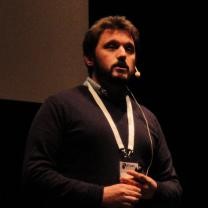Keynote Speakers

TITLE: Automated Statistical Analysis of Economic Agent-Based Models by Statistical Model Checking
ABSTRACT: In this talk, we present recent work regarding a novel approach to the statistical analysis of simulation models and, especially, economical agent-based models (ABMs). We present a fully automated and model-agnostic toolkit that can be integrated with existing simulators to inspect simulations and perform counterfactual analysis. Our approach: (i) is easy-to-use by the modeller, (ii) improves reproducibility of results, (iii) optimizes running time given the modeller's machine, (iv) automatically chooses the number of required simulations and simulation steps to reach user-specified statistical confidence, and (v) automatically performs a variety of statistical tests. In particular, our framework is designed to distinguish the transient dynamics of the model from its steady-state behaviour (if any), estimate properties of the model in both "phases", and provide indications on the ergodic (or non-ergodic) nature of the simulated processes -- which, in turns allows one to gauge the reliability of a steady-state analysis. Estimates are equipped with statistical guarantees, allowing for robust comparisons across computational experiments. To demonstrate the effectiveness of our approach, we apply it to two models from the literature: a large scale macro-financial ABM and a small scale prediction market model. Compared to prior analyses of these models, we obtain new insights and we are able to identify and fix some erroneous conclusions.
TITLE: 10 years of DataMod: Where to Go from Here
ABSTRACT: DataMod was founded in 2012 under the acronym of MoKMaSD (Modelling and Knowledge Management applications: Systems and Domains). The original aim of the Symposium, established by the United Nations University, was to focus on modelling and analysing complex systems while using knowledge management strategies, technology and systems to address problems of sustainable development in various domain areas. The focus was soon expanded to generally addressing the complementarity of model-based and data-based approaches and the synergetic efforts that can lead to the successful combination of these two approaches. Hence the new name of the Symposium: "From Data to Models and Back", which has been used since 2016.
In this presentation we will start from the origins and history of DataMod and will look into the community formed around the Symposium in order to identify some research areas that have been addressed during its first 10 years of life. In this perspective, we will try to understand to which extent the two components of the DataMod community managed to integrate. We will then have a look at what is happening outside DataMod and we will finally discuss which research and collaboration challenges should be addressed by future editions of DataMod.
